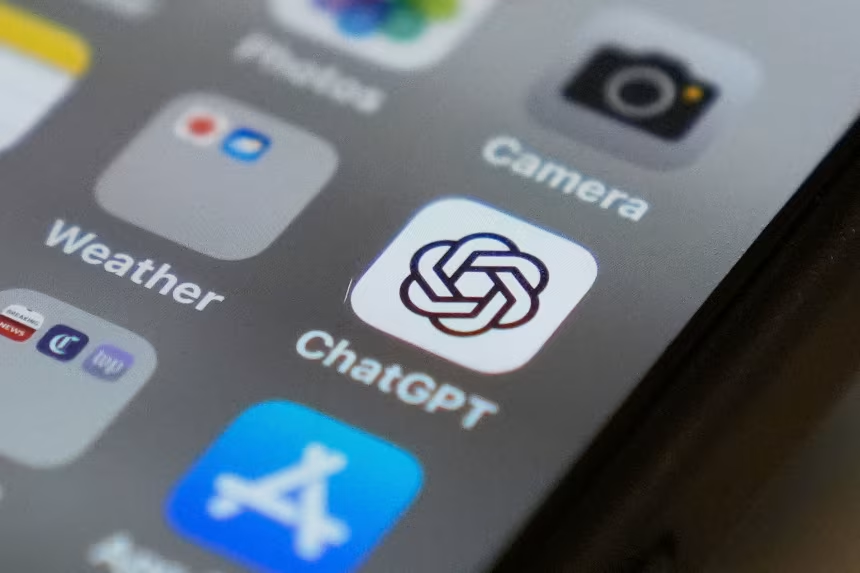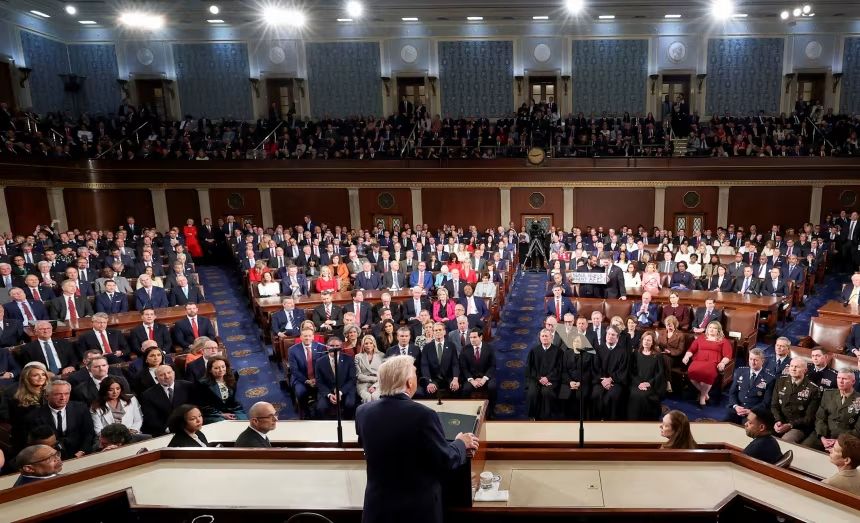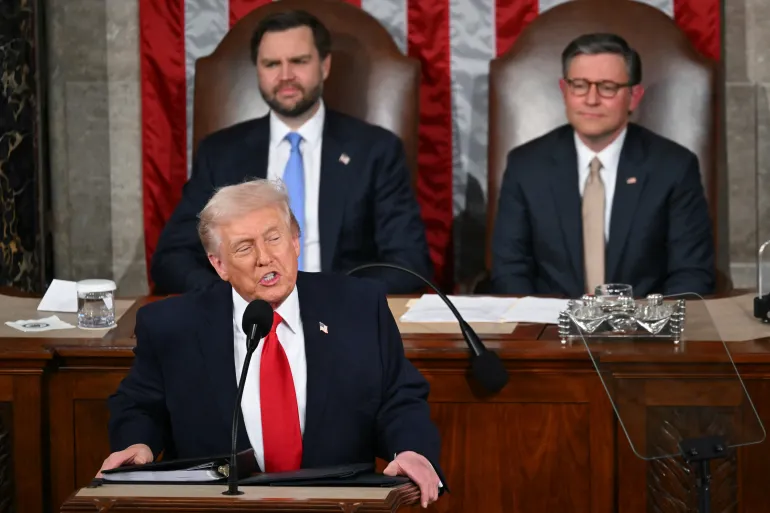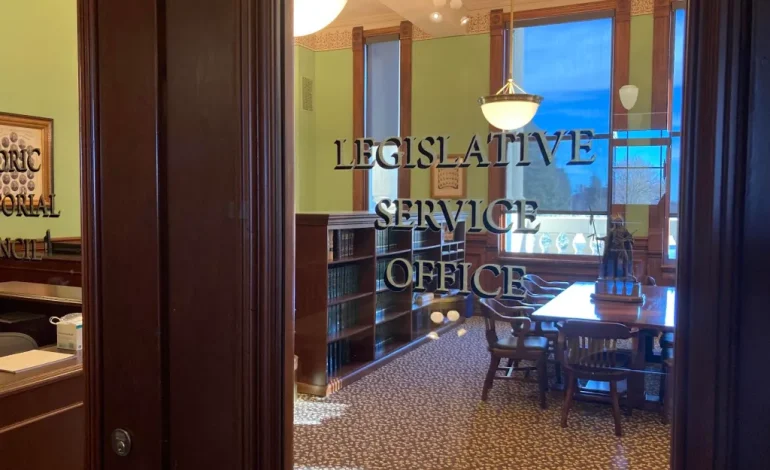The original story by for WyoFile.
A conservative political nonprofit is accusing Wyoming’s Legislature of censoring constituent emails — and in the process has kicked off a messy fight over transparency, dark money and who really controls the conversation at the Capitol.
The group, Honor Wyoming, claims that emails sent through its website to lawmakers are being blocked or buried by the state’s email system. Lawmakers and staff say that’s simply not true — the messages are getting through, they insist, just sometimes landing in junk or quarantine folders like any other bulk email.
The dispute became loud enough that lawmakers created a special panel to dig into the issue. That panel’s work has now spilled into the Management Council, sparked sharp comments about “dark money,” and produced a failed bill that’s almost certain to reappear in the next legislative session.
Honor Wyoming burst onto the scene in 2024 with billboards and social media ads, positioning itself as a watchdog for “freedom” and “transparency” in state politics. Its website offers a quick way for users to blast emails to lawmakers in bulk — a handy tool if you’re trying to flood inboxes and show force on hot-button issues.
But that high-volume tactic has a downside: modern email systems tend to treat identical or near-identical mass messages as spam.
That’s exactly what happened.
Thousands of Honor Wyoming-generated emails ended up flagged by the state’s Microsoft Outlook system, routed into lawmakers’ junk or quarantine folders. Lawmakers could still access them — but they weren’t popping up front and center in the main inbox.
Honor Wyoming called that censorship.
“Whether wittingly or unwittingly, the Wyoming Legislative Services [sic] Office has been censoring communications with legislators,” the group wrote on its website in March.
Back in December, the group sent the state a lawyer’s letter, threatening legal action if the situation wasn’t fixed.
In April, legislative leaders created an interim subcommittee to look into Honor Wyoming’s claims and understand what, exactly, the state’s email system was doing with those messages.
The panel was co-chaired by:
- House Speaker Chip Neiman, R-Hulett;
- Sen. Barry Crago, R-Buffalo.
Other members included:
- Rep. John Bear, R-Gillette;
- Sen. Mike Gierau, D-Jackson.
Their job: figure out whether the emails were being blocked, whether the system needed to change, and whether lawmakers should pass new laws to guarantee email access and transparency.
When the subcommittee wrapped up and reported to the Management Council last week, the four lawmakers were split on whether legislation was needed — and the debate got contentious fast.
The meeting started with a technical briefing from legislative staff.
Matt Obrecht, director of the Legislative Service Office (LSO), made one key point right away:
“It’s important for everyone to know that these emails in question were all being delivered to legislators,” he said. “It was just a question of whether they’re going to your inbox, your junk folder, or your quarantine folder, all of which legislators have access to.”
Deputy operations administrator Anthony Sara said staff had spent a huge chunk of the interim digging into the issue:
- They did a “deep dive” into the email system.
- They held extended talks with Microsoft.
- They trained lawmakers on how to check junk and quarantine folders and how to release emails into their inbox.
- They updated the Legislature’s website so constituents would know who to contact if they suspected email delivery problems.
Sara also pointed out that some factors simply can’t be changed by the state:
“The scores that Microsoft gives each email for spam, what’s called the spam confidence level, cannot be adjusted by users and is 100% determined by Microsoft,” he said.
Senate President Bo Biteman, R-Ranchester, asked the obvious question:
“It’s been insinuated online and on billboards that our staff and certain legislators are purposely censoring emails and content thereof. Is that true?”
Sara’s answer was blunt:
“No, I can assure you that nobody within our IT section is selecting where emails go, nor do we have the resources to do that with the amount of emails that you all get.”
If Honor Wyoming is going to accuse the Legislature of hiding communication, some lawmakers argued, then the group should be willing to answer a basic question: Who are you?
Honor Wyoming is structured as a nonprofit, which means it is not required under federal law to disclose its donors or board members the way candidates and PACs must. That puts it in the category commonly referred to as “dark money” — political spending whose true source is hidden from public view.
At the meeting, Sen. Mike Gierau asked the group’s attorney, Drake Hill, a straightforward question:
“Can you tell me a little bit about Honor Wyoming? Like, who’s the board of directors? Who’s in charge of this outfit, Mr. Hill?”
Hill — a former state GOP chairman and husband of former Superintendent of Public Instruction Cindy Hill — did not provide an answer.
“Honestly, I’m not aware of who the board members are, but I do know that the scope of their mission is to bring awareness to issues,” he said.
That didn’t sit well with Sen. Crago. Lawmakers are being asked for transparency, Crago said, by a group that “can’t even tell us who their board of directors is.”
“I find that somewhat ironic — asking for transparency when unwilling to tell us who’s paying the bills back home,” he added.
Rep. John Bear has been Honor Wyoming’s main ally inside the Legislature on this issue.
He argued that even if emails technically arrive somewhere in the system, messages that slip into junk or quarantine folders are less likely to be seen — and that hurts constituents trying to contact their elected officials.
“There’s another side to this story,” Bear said. “Our constituents would like to contact us via email, and I’d like to be an advocate for those constituents.”
Bear pitched a bill that would require legislative staff to produce and publish a list of email addresses that had been quarantined:
- Every working day during the legislative session;
- Once a week during the rest of the year.
The list would be partially redacted for security, but the idea was that if someone was worried their email wasn’t getting through, they could check or ask staff to confirm.
Bear framed it as a First Amendment issue:
“I’m here today to try to come up with a solution so that even though we have [security] risks that we live with, the First Amendment opportunity of our constituents to contact us and discuss things with us via email is continued.”
Throughout his comments, Bear repeatedly said that constituent emails were being “blocked.”
That word choice set off another clash.
“We’ve established the fact that no emails have been blocked,” Biteman said. “So you’re being disingenuous when you use the term ‘blocked.'”
Bear replied that he’d “attempt not to use the word,” but insisted that was his perception — and what he believed “99% of people out there” think is happening.
Honor Wyoming’s attorney Hill, trying to smooth things over somewhat, said the exact terminology matters less than the outcome: The goal, he said, is to make sure constituents “are heard in whatever manner” they choose to communicate.
House Speaker Neiman backed the bill as well, arguing it wasn’t just about one group:
“This really isn’t because of one organization’s issue,” he said, pointing to other politically active groups like the American Gun Owners Association.
“The bill isn’t for one organization, it’s for the citizens of the state of Wyoming.”
In the end, the Management Council vote on whether to sponsor Bear’s bill was 5–5 — a tie, which means the measure failed to move forward as a committee-sponsored bill. But any individual lawmaker can still bring it back in the 2026 budget session, which convenes Feb. 9.
Voting for the bill:
- Sen. Tim Salazar, R-Riverton;
- Sen. Bo Biteman, R-Ranchester;
- Rep. John Bear, R-Gillette;
- Rep. Chip Neiman, R-Hulett;
- Rep. Jeremy Haroldson, R-Wheatland;
- Rep. Scott Heiner, R-Green River.
Voting against:
- Sen. Barry Crago, R-Buffalo;
- Sen. Mike Gierau, D-Jackson;
- Sen. Tara Nethercott, R-Cheyenne;
- Rep. Mike Yin, D-Jackson.
(As reported, the final count on the council was 5–5; some members sit on the council in different capacities.)
Not everyone thought the email bill was really about access.
Sen. Tara Nethercott, R-Cheyenne, argued the controversy reflects something bigger: national political groups muscling into Wyoming’s politics.
“The conversation we’re really having here today is about Wyoming being taken over by large political, well-funded organizations that have the ability to control your elected [officials] through fear and misinformation,” she said, “creating confusion and fractionalization of our great state. It must come to an end.”
Nethercott urged residents to keep contacting lawmakers directly, using the phone numbers and email addresses listed on the Legislature’s own website — not just through mass-email platforms.
Senate President Biteman made a similar point about public interest. If this were truly a burning issue for everyday Wyomingites, he said, the room would look different.
“If the issue was one of importance to Wyoming residents, this room would be full of people testifying,” he said. “Nobody showed up. Not a single person other than the group who’s caused this whole thing to be before us today.”
For now, the takeaway is this:
- Honor Wyoming’s emails are getting to the Legislature’s system — just not always straight into the main inbox.
- Lawmakers and staff have tweaked settings, talked with Microsoft, and trained members on how to find those messages.
- The proposed “quarantined email list” bill fell short this round, but is likely to be back in 2026.
- The broader fight over dark money, influence campaigns, and “election integrity” messaging is nowhere near over.
In the meantime, if you want to be sure your lawmaker sees your message, the safest route might be the oldest one: use their direct email, follow up if you don’t hear back — and maybe pick up the phone.










The latest news in your social feeds
Subscribe to our social media platforms to stay tuned